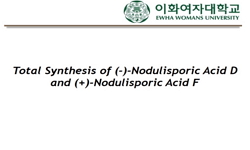The agricultural industry is beset by continuing demands to decrease the use of pest control agents which employ toxic modes of action. Although there are real problems of pesticide resistance, and sometimes overuse or redistribution in the environmen...
http://chineseinput.net/에서 pinyin(병음)방식으로 중국어를 변환할 수 있습니다.
변환된 중국어를 복사하여 사용하시면 됩니다.
- 中文 을 입력하시려면 zhongwen을 입력하시고 space를누르시면됩니다.
- 北京 을 입력하시려면 beijing을 입력하시고 space를 누르시면 됩니다.
https://www.riss.kr/link?id=A106554320
- 저자
- 발행기관
- 학술지명
- 권호사항
-
발행연도
1992
-
작성언어
English
- 주제어
-
등재정보
KCI등재
-
자료형태
학술저널
- 발행기관 URL
-
수록면
304-313(10쪽)
- 제공처
- 소장기관
-
0
상세조회 -
0
다운로드
부가정보
다국어 초록 (Multilingual Abstract)
The agricultural industry is beset by continuing demands to decrease the use of pest control agents which employ toxic modes of action. Although there are real problems of pesticide resistance, and sometimes overuse or redistribution in the environment, much criticism results from a lack of appreciation of how small is the risk involved. Whatever the background reasons, research and development for pesticide alternatives, particularly within Integrated Pest Management systems, is clearly of high priority. Currently available approaches, including use of natural products and molecular biology, are often regarded with naive optimism and require critical appraisal. For the future, methods of pest control based on chemicals with non-toxic modes of action (e.g. pheromones) continue to offer promise but, for widespread use, will require their integration with biological agents and development by means of plant molecular biology.
동일학술지(권/호) 다른 논문
-
Strategy for Insecticide Resistance Management Approach to IPM
- Korean Society of Applied Entomology
- Motoyama, Naoki
- 1992
- KCI등재
-
Towards Integrated Pest Management of Rice in Korea
- Korean Society of Applied Entomology
- Lee, Seung-Chan
- 1992
- KCI등재
-
In Vitro Rearing of parasitoids of Insect Pests in China
- Korean Society of Applied Entomology
- Li, Li-Ying
- 1992
- KCI등재
-
Potential Strategies for Prolonging the Usefulness of Bacillus thuringiensis in Engineered Rice
- Korean Society of Applied Entomology
- Bottrell, D.G.
- 1992
- KCI등재





 ScienceON
ScienceON 코리아스칼라
코리아스칼라





